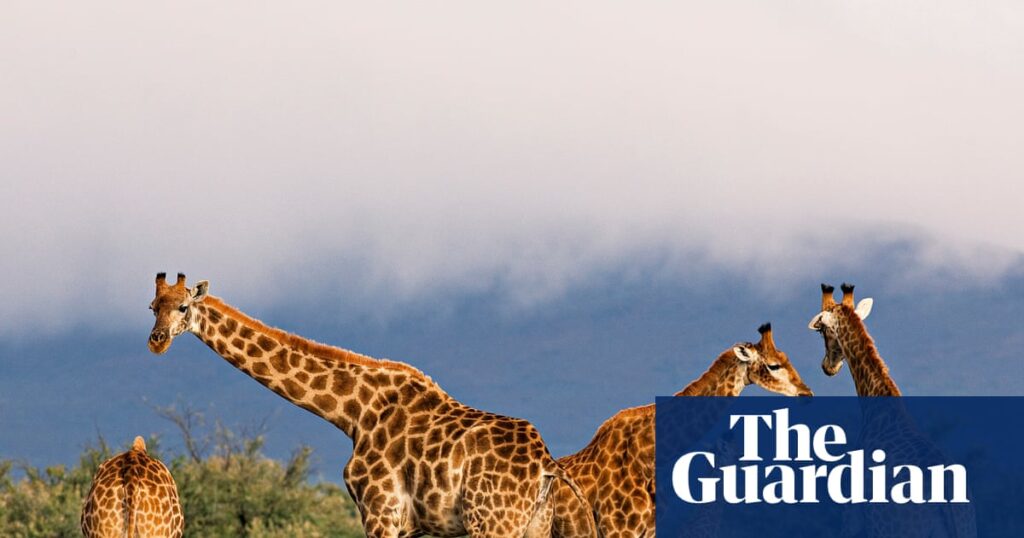Nobody expected the Spanish Inquisition, but then again no one could have predicted the giraffe, the iPhone or JD Vance. The laws of physics don’t demand them; they all just evolved, expressions of how (for better or worse) things happened to turn out.
Ecologist Mark Vellend’s thesis is that to understand the world, “physics and evolution are the only two things you need”. Evolution, here, refers in the most general sense to outcomes that depend on what has gone before. Thus the world can be divided into things that are inescapable and things that are contingent, depending on circumstances. In the terminology he borrows from evolutionary biologist Graham Bell, the study of physical necessity is the “first science”; that of historical contingency the second. So, the periodic table of 90 or so natural elements, which are inescapable given the laws of physics, would fall under the first science. Dung beetles and vice presidents, which aren’t, fall under the second.
This “second science”, Vellend argues, unites disciplines from evolutionary biology to anthropology, history, economics and political science. If we fail to teach children about evolutionary processes, we “deprive them of understanding the fundamental set of processes that underlie not only life, but also the cultures and economies (and education systems) in which they live and work”. In developing this thesis, Everything Evolves draws on examples from technology and product design, microbiology, ecology, linguistics, and more.
When biologists talk of evolution, they tend to mean the neo-Darwinian theory of evolution by natural selection, which incorporates three phenomena – variation, selection and inheritance. Life generates diversity: some animals, for example, can run faster than others. (Darwin didn’t know how such variation arose; it is now attributed to genetic mutation.) Some of those variants help an animal survive because they’re better adapted to its environment and circumstances. These are the ones that are selected for inheritance – they’re passed on to the next generation, rather than dying out.
But Vellend advises against a too Darwin-centric view of evolution. For one thing the theory is much more complex than this bullet-point summary. Some organisms survive by sheer luck, not adaptive advantage, creating random drift in traits. And, as Vellend explains, the nuances seem endless. For instance, the “fitness” of some variants may depend on how rare or common they are, as he illustrates by analogy with baby names: a name might be more fit when it’s unusual than when it’s familiar. Fitness is also multi factorial: does a mobile phone perform better in the marketplace by virtue of being smaller, faster, nicer to look at, cheaper? How is one advantage weighed against another?
As these examples show, ideas from evolutionary theory can be applied to social systems and artefacts, from corporations to computers. But this doesn’t mean they too evolve in strictly Darwinian fashion. Other types of evolution are possible: ones that involve an element of planning, rather than random variation, say. What they all have in common is repeated trial and error, with some way of assessing the products and retaining what works. Vellend attempts to paint this larger picture through the metaphor of an “evolutionary soundboard” on which a series of dials controlling factors such as variation, inheritance and differential success can be twiddled. It’s a noble effort at unification – but as any engineer knows, once you have a complex system governed by many independent factors, the possibility space is vast and the task of predicting (or understanding) outcomes overwhelming. In the end, the message is simply that evolving systems are widespread and massively complicated.
Vellend recognises that he is not the first to suggest a distinction between physical determinism and evolutionary contingency. In A World Beyond Physics (2019), for example, complexity theorist Stuart Kauffman argued that “physics will not tell us whence we come, how arrived, why the human heart exists, nor why I can buy nectarines in Eastsound [an island in the Pacific north-west]”.
But can a description of the physical and social worlds really be split so neatly in two? On the one hand, if nature really is lawlike at the fundamental level, doesn’t that mean everything that has happened since the big bang, including the evolution of dung beetles, has an inevitability about it? Certainly there seems to be some lawlike predictability to both biological and social evolution. Fluid dynamics makes it likely that many flying things would be winged and swimming things streamlined. Physical principles prevent humans growing 20 ft tall or trees topping about 300 ft. There is a physics that describes traffic jams and networks like the internet or Amazonian ecosystems.
On the other hand, quantum mechanics is probabilistic: we can’t say what will happen at the microscopic scale, only what might. It’s widely thought that the large-scale structure of the universe carries the imprint of quantum fluctuations – of chance – laid down when the cosmos was still around the size of an atom. So in a sense there is a contingency to absolutely everything that exists.
after newsletter promotion
Vellend’s proposal for a restructuring of the academic curriculum into the first and second sciences is, then, open to debate. Yet he does a valuable job of reminding us how little fundamental physics explains, or ever will. “Everything,” the zoologist D’Arcy Thompson is said to have once opined, “is the way it is because it got that way.” Vellend’s title might be truer than even he recognises.


